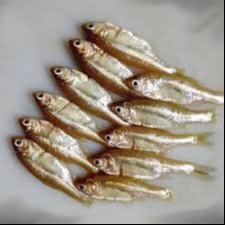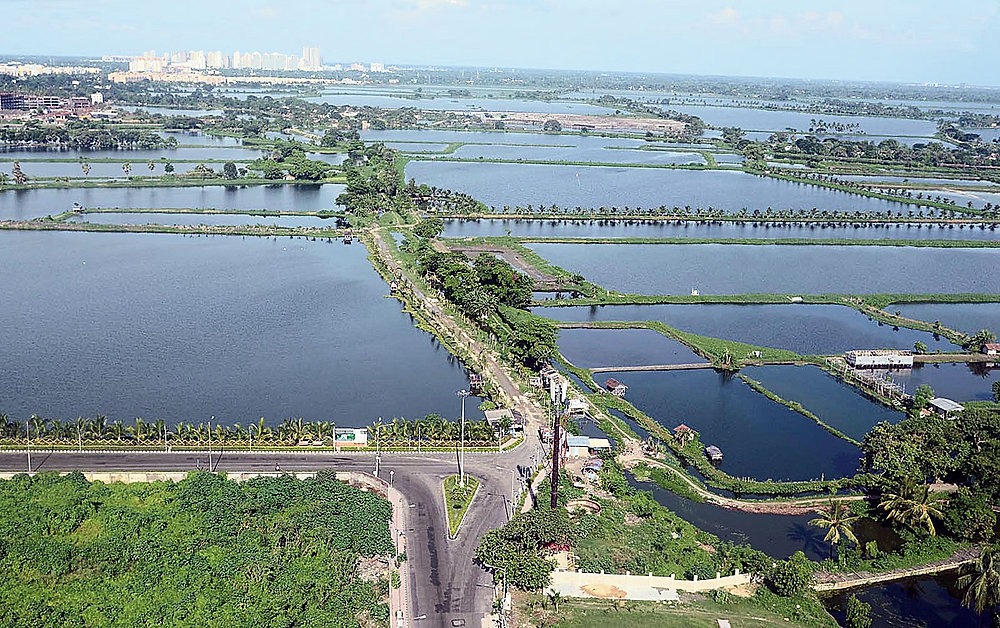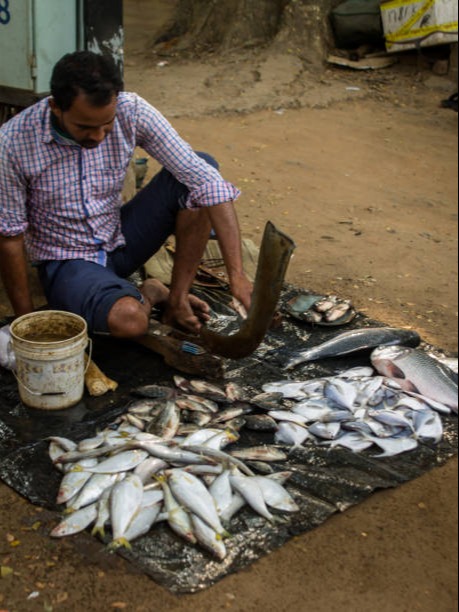In the intricate tapestry of Bengals culinary and cultural identity small fish those humble glistening swimmers like punti mourala mola and tyangra hold a place of quiet but profound reverence They may lack the grandeur of a hilsa or the glamour of a bhetki but their presence on the Bengali plate is nothing short of sacred Yet as rivers choke and wetlands shrink a grim question looms do these small fish have a future
This is not merely a matter of taste or tradition It is a question entangled with ecology economy and the ethics of survival in a rapidly urbanizing Bengal

A Crisis Hidden Beneath the Waters
The small fish once teemed in ponds canals and paddy fields across Bengal They were never hard to find every splash in a village ditch was a sign of life and every monsoon flood would refill natures pantry But over the last few decades their numbers have dwindled alarmingly
Why is this happening
Wetlands are vanishing victims of reckless real estate development and unplanned urbanization Every stretch of water converted into a housing complex or shopping mall is a graveyard for biodiversity Pesticide heavy agriculture and chemical runoff have rendered many water bodies toxic Aquatic vegetation essential for spawning is dying And with them go the fish

In Kolkata alone what remains of the once thriving bheris traditional fish farms of East Kolkata is under constant threat from encroachment and pollution Once nurtured by nutrient rich wastewater they now battle contamination and neglect
The Vanishing Nutrients
Small fish are nutritional powerhouses rich in protein calcium omega 3 fatty acids and micronutrients vital for children and the elderly They are consumed whole bones and all offering a complete nutritional package But ironically as their availability shrinks their prices rise putting them out of reach for the very people who need them most
In rural Bengal small fish have long been the protein of the poor Now even village markets struggle to stock them What was once a daily staple is fast becoming a rare indulgence
The Disappearance of Knowledge
With the fish another treasure disappears knowledge
The traditional fishing methods the folk names of countless species the home remedies involving fish paste and fish oil the culinary nuances passed down through generations all are being lost When a child no longer knows the difference between mola and morola when a young homemaker has never tasted chechra made with pabda bones and lau pata a cultural silence begins to settle
This is not just ecological erosion it is cultural erosion
The Rise of Monoculture and Aquaculture
In response to dwindling wild catches Bengal has turned to aquaculture But here too lies another problem
Modern fish farming especially in large scale tanks favors a few fast growing species like rohu katla or pangas These monocultures are efficient but ecologically sterile Small indigenous species are sidelined because they fetch less money and are harder to breed in captivity The pond becomes an economic unit not an ecosystem
This capitalist logic while profitable in the short term undermines biodiversity in the long term We forget that small fish are not just food they are part of a chain They feed bigger fish birds and even regulate mosquito populations Their absence destabilizes the entire aquatic food web

Policies and Apathy
Despite the gravity of the crisis small fish barely feature in governmental conservation policies The focus remains on large species with export potential Wetlands are sacrificed on the altar of development with little thought given to their role as nurseries of life
There have been occasional attempts such as introducing hatcheries for certain small fish or community based pond management but these are scattered and underfunded What is needed is a paradigm shift to recognize that saving small fish is not about nostalgia but about food security environmental health and cultural continuity
What Can Be Done
Protect Wetlands Wetlands must be legally protected not just for their scenic or hydrological value but as critical habitats The East Kolkata Wetlands a Ramsar site is a prime example of how ecological preservation can coexist with economic use if managed wisely
Promote Sustainable Fishing Encourage traditional fishing methods that are low impact and biodiversity friendly Ban destructive practices like illegal netting during breeding seasons
Revive Community Knowledge Local fishing communities hold centuries of wisdom Their voices should guide conservation efforts Involving them in decision making is not charity it is strategy
Integrate Small Fish into Nutrition Programs School meals maternal health programs and public distribution systems should incorporate small fish to address malnutrition

Rethink Aquaculture Move towards polyculture systems where small fish can thrive alongside larger ones Scientific research should support the breeding and cultivation of indigenous species
Educate and Advocate Lets talk about small fish Write about them cook them and teach children their names Cultural visibility is the first step to conservation
A Matter of Choice
In the end the future of small fish is tied to the choices we make Will we allow concrete to replace the living waters of Bengal Will our diets be dictated by supermarkets and imports or will we honor the seasonality and specificity of local foods
Preserving small fish is about more than saving species It is about saving a way of life that respects the rhythms of nature celebrates frugality without shame and understands that value does not always lie in size or price
Let us hope that the punti still flickers in our ponds that children still chase mourala in ankle deep waters and that Bengal never forgets the flavor of its smallest most precious treasures
